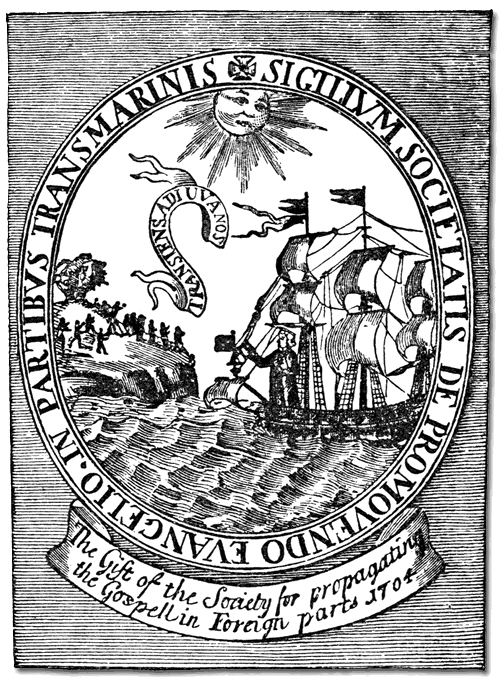
Introduction to Lesson 3
The enslaved Africans arrived in North America over a century before the Great Awakening of 1730 to 1740 bringing with them a fully developed culture of music, dance, and song rooted in centuries of tradition. In Southern (1997, 36), we read that during the years 1702 to 1785, "the Society for the Propagation of the Gospel in Foreign Parts" sent clergymen to the colonies to minister to the slaves. This missionary organization of the Established Church of England was established in 1701. In association with their work, the missionaries established several schools for the religious instruction of enslaved Africans throughout the New England colonies and the singing of Psalms. Rector of the Trinity Church in New York, Richard Charlton, reported to his superior in 1741 that "forty-three Negroes were studying psalmody with the church organist." He later writes in a letter: "I have got Clark to raise a Psalm when their instruction is over, and I can scarcely express the satisfaction I have in seeing 200 Negroes and White persons with heart and voice glorifying their Maker," (Southern 1997, 37). This supposed cultural and musical Great Awakening may just well have been wishful thinking on the part of the slave masters.
It's important to note, moreover, that the enslaved Africans transformed Christianity in order to fit their particular needs and through the spiritual traditions they brought with them from Africa, in which music often played a significant role. In the first episode of the PBS documentary This Far by Faith video entitled "The Ringshout & the Birth of African-American Religion", Reverend Alonzo Johnson, of Bowman Temple Church of God in Christ, in Bowman, South Carolina, calls evangelical religion "a religion of feeling:"

The Ringshout & the Birth of African-American Religion
A religion of feeling
Evangelical Christianity gave the slaves physical identification beyond mortal description. It wasn't just a matter of doctrine or creeds; "it was something you felt." Notably, Rev. Johnson adds, "It was something in the religion of the oppressors the slaves saw which was deeper than that of the oppressors' presentation. Therefore, "Black people did not assume the Christianity of their oppressors. The Christianity that Black people assumed was one they created, re-evaluated, and reconfigured to fit their needs."

There must be another Bible within that Bible.
This Far by Faith

Albert Raboteau
...even as the gods of Africa gave way to the God of Christianity, the African heritage of singing, dancing, spirit possession, and magic continued to influence African American spirituals, ring shouts, and folk beliefs.
Rev. Johnson
It was something in the religion of the oppressors the slaves saw which was deeper than that of the oppressors' presentation.






